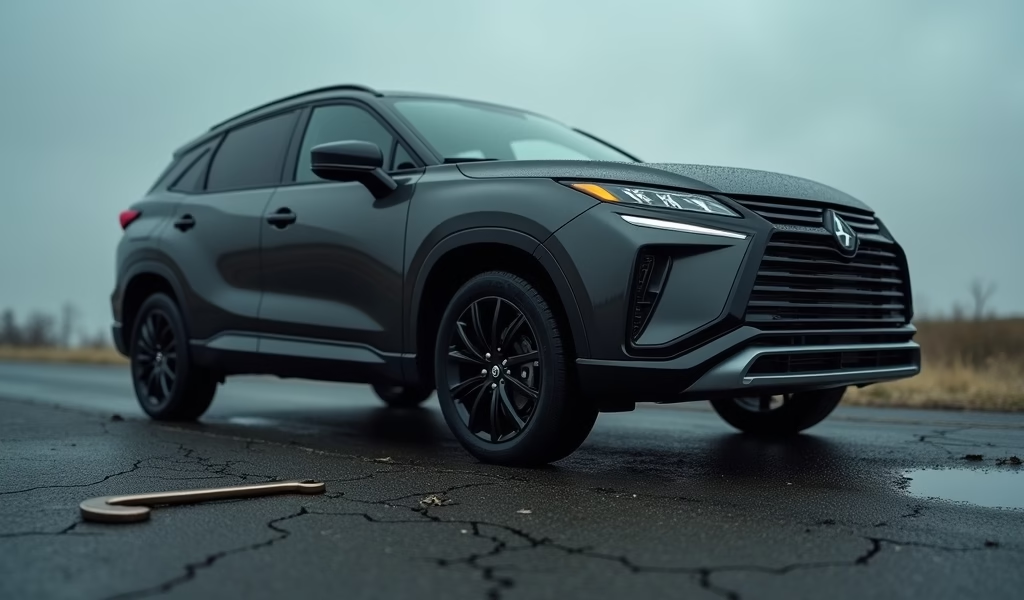Overview
This article presents seven essential car care tips for rental vehicles, including performing thorough pre-rental inspections, understanding vehicle controls, monitoring fluid levels, maintaining tires, keeping the interior clean, following fuel guidelines, and reporting problems immediately. The guidance aims to help renters avoid additional charges, ensure safety and comfort during their journey, and get the most value from their rental experience regardless of which company they choose.
Table of Contents
- Finding the Best Car Rental Company For Your Needs
- Car Care Tip #1: Perform a Thorough Pre-Rental Inspection
- Car Care Tip #2: Get Familiar With Your Rental’s Controls
- Car Care Tip #3: Keep an Eye on Those Vital Fluids
- Car Care Tip #4: Don’t Neglect Tire Maintenance
- Car Care Tip #5: Maintain a Clean Interior
- Car Care Tip #6: Follow the Right Fuel Guidelines
- Car Care Tip #7: Report Problems Immediately
- Conclusion: Getting the Most From Your Rental Experience
- Frequently Asked Questions
Finding the Best Car Rental Company For Your Needs
Finding the best car rental company isn’t just about scoring the lowest price. It’s about finding a reliable partner for your journey, whether you’re traveling for business or embarking on that long-awaited road trip. After spending 15 years working on rental fleets, I’ve seen firsthand how proper car care can make or break your rental experience.
Today’s rental market offers everything from budget-friendly economy cars to luxury vehicles that turn heads. Companies like Enterprise, Hertz, and Avis compete with newer players such as Turo and Zipcar, each with unique strengths. But regardless of which company you choose, knowing how to care for your temporary ride is essential.
The relationship between you and your rental car is brief but significant. Treating it right not only helps you avoid those dreaded additional charges but also ensures your safety and comfort throughout your journey. Let me walk you through seven practical car care tips that will serve you well with any rental company.
Car Care Tip #1: Perform a Thorough Pre-Rental Inspection
I can’t stress this enough: document everything before you drive away from that rental lot. Take your time – those extra 10 minutes could save you hundreds of dollars and considerable headaches later. Too many times I’ve seen customers charged for damage they didn’t cause simply because they skipped this crucial step.
Walk slowly around the vehicle and look for any scratches, dents, or paint chips. Check the windshield for cracks or stars that might spread during your trip. Inside, inspect the upholstery for stains, tears, or burns. Test all electronics, including the climate control, audio system, and any advanced features like parking cameras.
Your smartphone is your best defense here. Take clear, well-lit photos of any existing damage, no matter how minor it seems. These time-stamped images provide indisputable evidence of the car’s condition when you received it. Make sure the rental agent notes all damage on your agreement and gives you a signed copy.

Car Care Tip #2: Get Familiar With Your Rental’s Controls
Ever found yourself fumbling for the headlight switch as darkness falls or desperately searching for windshield wipers during a sudden downpour? Each vehicle has its own personality and quirks. Taking five minutes to learn these nuances before hitting the road isn’t just about convenience – it’s about safety.
Before pulling away from the rental lot, take time to adjust your seat and mirrors properly. Locate essential controls like headlights, turn signals, wipers, and hazard lights. Figure out how the climate system works and test it. Locate the fuel cap release and check if there’s a spare tire and where it’s stored.
Modern rentals often come equipped with advanced features that might differ significantly from your personal vehicle. I’ve seen drivers distracted and frustrated trying to figure out unfamiliar dashboard interfaces while driving. That’s dangerous. If your rental has features you don’t understand, ask the agent for a quick tutorial or check the glove compartment for the owner’s manual.
Quick Control Checklist:
- Adjust seat, steering wheel, and mirrors
- Locate and test headlights and turn signals
- Find and test windshield wipers
- Understand climate controls
- Test entertainment system controls
- Check for cruise control and how to activate it
- Locate emergency brake and release
Car Care Tip #3: Keep an Eye on Those Vital Fluids
For rentals lasting more than a few days, monitoring fluid levels becomes increasingly important. These fluids are quite literally the lifeblood of your rental vehicle. While rental companies typically maintain their fleets well, checking fluids can save you from unexpected breakdowns and the associated headaches.
Oil is particularly critical. If your rental involves significant mileage, check the oil level at least once during your rental period. It’s quick and simple: with the engine off and the car on level ground, locate the dipstick (usually marked with a bright handle), pull it out, wipe it clean, reinsert fully, pull it out again, and check where the oil level falls on the marked range.
Windshield washer fluid needs more frequent attention, especially during winter driving or dusty conditions. Most gas stations sell it inexpensively, and topping up takes seconds – just locate the reservoir (usually marked with a windshield or water symbol) and refill as needed.
If any warning lights illuminate on your dashboard, don’t ignore them or try to troubleshoot yourself. Contact your rental company immediately. That small oil light could be warning you of an impending engine failure that could leave you stranded and facing significant charges from the rental company.
Car Care Tip #4: Don’t Neglect Tire Maintenance
Your entire rental vehicle – with you and your belongings inside – rides on just four small patches of rubber, each about the size of your hand. Proper tire maintenance isn’t just about avoiding flats; it affects safety, comfort, fuel economy, and overall driving experience.
Tire pressure fluctuates with temperature changes. A tire properly inflated in Miami might be significantly underinflated if you drive to a chilly mountain destination. Check pressure whenever you refuel, especially on long trips or when traveling between different climates. The recommended PSI is typically listed on a sticker inside the driver’s door jamb.
Watch for warning signs like a vehicle pulling to one side, unusual vibrations, or uneven wear patterns. These symptoms indicate alignment issues or other problems that should be addressed promptly. If you notice any of these signs or spot a visibly low tire, contact your rental company – most have roadside assistance specifically for such situations.
Be especially vigilant after driving on rough roads or hitting potholes. A single hard impact can damage a tire’s internal structure without showing immediate external signs. If something feels “off” about your vehicle’s handling after such an incident, play it safe and have the tires checked.

Car Care Tip #5: Maintain a Clean Interior
A rental car quickly becomes your temporary home on wheels. Like any living space, it benefits from regular maintenance. Beyond avoiding cleaning fees (which can be surprisingly steep), keeping the interior clean improves your driving experience and prevents permanent damage to the vehicle.
Develop simple habits like removing trash each time you exit the vehicle and keeping a small trash bag in the car. Shake out floor mats regularly if you’re traveling in dusty or muddy conditions. Use sanitizing wipes on high-touch surfaces like the steering wheel, door handles, and control panels, especially if multiple people are using the vehicle.
Food and drinks are common culprits for interior damage. While that drive-thru might be calling your name, consider whether eating while driving is worth the risk of spills and stains. If accidents do happen, address them immediately – most gas stations have paper towels near the pumps for quick cleanups.
Before returning your rental, conduct a thorough check under seats, in door pockets, and in the trunk for personal items. I’ve seen everything from passports to expensive electronics left behind in rentals. Nothing sours a great trip faster than realizing your favorite sunglasses or phone charger is now hundreds of miles away!
Interior Maintenance Quick Tips:
- Remove trash during each stop
- Keep a small trash bag in the vehicle
- Wipe down surfaces regularly with sanitizing wipes
- Address spills immediately
- Check thoroughly for personal items before return
Car Care Tip #6: Follow the Right Fuel Guidelines
Using the wrong fuel is like putting orange juice in your coffee – expensive and potentially disastrous. Most rental vehicles have fuel requirements clearly marked inside the fuel door, but it’s worth double-checking your rental agreement or asking the agent if you’re uncertain.
If the vehicle requires premium fuel, there’s a good reason for it. Using regular grade in a premium-requiring engine can cause knocking, reduced performance, and in extreme cases, damage. Conversely, putting premium in a car designed for regular is simply throwing money away – the higher octane won’t improve performance or fuel economy in an engine not designed for it.
Most rental agreements require you to return the car with the same fuel level as when you received it. The rental company’s refueling charges typically far exceed market rates, often by two to three times. Plan ahead to refuel near the return location, keeping your receipt as proof of purchase.
If you’re renting in an unfamiliar area, it’s worth using a gas station app like GasBuddy to locate fuel stations near your return point. This small bit of planning can save you both money and the stress of hunting for gas when you’re rushing to catch a flight.
Car Care Tip #7: Report Problems Immediately
When it comes to rental cars, silence isn’t golden – it’s potentially costly. If you notice anything unusual about your vehicle’s performance or condition, reporting it promptly serves everyone’s interests, especially your own.
Unusual noises, warning lights, or performance issues aren’t just annoyances – they’re often early warning signs of more serious problems. By reporting them immediately, you not only protect yourself from liability but also might prevent a breakdown that could disrupt your plans.
Document everything with photos and notes, including the date, time, and circumstances of any incident or issue. Keep a record of who you spoke with at the rental company and what was discussed. This paper trail could prove invaluable if questions arise later.
Most rental companies have 24-hour emergency numbers precisely because they understand that vehicle issues don’t respect business hours. Don’t hesitate to use these resources – that’s exactly what they’re there for. In my experience, rental companies appreciate proactive reporting and are more likely to work with customers who communicate openly.
Conclusion: Getting the Most From Your Rental Experience
Caring for your rental car isn’t just about avoiding charges—it’s about ensuring your safety, comfort, and peace of mind throughout your journey. The best car rental company might offer competitive rates and shiny vehicles, but the quality of your experience largely depends on how you handle that temporary relationship with your rental.
These seven care tips represent what I’ve learned from years in the industry and countless customer experiences. By performing thorough inspections, understanding your vehicle’s controls, monitoring fluids, maintaining tires, keeping the interior clean, using the right fuel, and promptly reporting issues, you set yourself up for a hassle-free rental experience.
Remember that a rental car is more than just a vehicle—it’s your ticket to new adventures, important business meetings, or reconnecting with loved ones. Treat it with care, and it will serve you well throughout your journey.
What are your rental car experiences? Have you discovered your own tips and tricks for making the most of your rental? I’d love to hear your stories and suggestions. Share your thoughts in the comments below or reach out to us directly with your own car care insights!
Frequently Asked Questions
Which company offers the best value for car rentals?
Value varies based on your specific needs and location. Generally, Enterprise and Costco Travel consistently rank high in customer satisfaction for their combination of competitive pricing and service quality.
Do I need to purchase the rental company’s insurance?
Not necessarily, as your personal auto insurance or credit card may provide adequate coverage. Check your existing policies before your trip to avoid paying for duplicate coverage.
How can I get the best price on a car rental?
Book early, use comparison sites like Kayak or Expedia, join loyalty programs, and check for corporate or membership discounts. Prices often drop significantly for weekly rentals compared to daily rates.
Should I refill the gas tank myself before returning?
Yes, absolutely. Rental company refueling charges typically cost 2-3 times more than local gas prices, making self-refueling the most economical option.
What’s the most important thing to check when picking up a rental car?
Document all existing damage with photos and ensure it’s noted on your rental agreement. This pre-rental inspection is your best protection against being charged for damage you didn’t cause.

